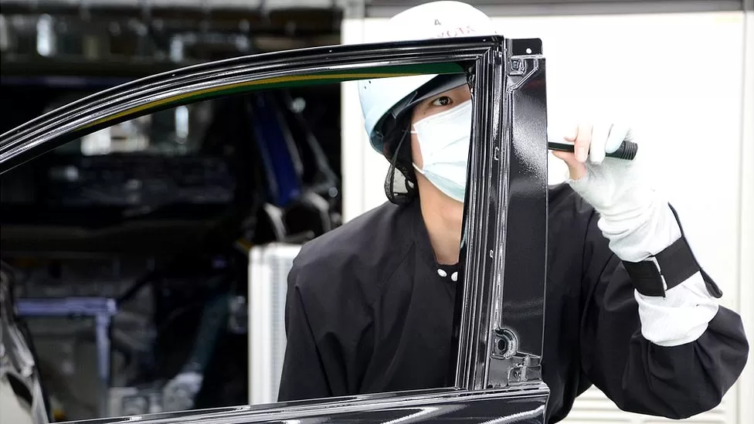Japanese motor industry giants Toyota and Honda say they have agreed to give their workers in the country the biggest pay rises in decades.
They are the latest firms in the world's third-largest economy to increase wages as prices jump.
Official figures published last month showed Japan's rate of inflation was at its highest level in over 40 years.
That has put pressure on businesses and authorities to help people as their spending power shrinks.
Each year Japanese firms typically hold pay talks with unions for weeks before announcing their decisions around the middle of March.
The car makers have not said why this year's announcements were made earlier than usual.
On Wednesday, Toyota said it will meet union demands for pay and bonuses, with wages increasing by the most in 20 years.

Toyota's incoming president Koji Sato said that he hoped the move would have a positive impact across Japan's motor industry and "lead to frank discussions between labour and management at each company."
The company declined to provide further details when approached by the BBC.
Meanwhile, rival car maker Honda told the BBC that it had "fully answered" union requests for wage increases and bonuses.
The company said it will raise salaries by 5%, marking the biggest increase since 1990 and above Japan's rate of inflation.
A Honda spokesperson said the extra money will largely be distributed to younger employees as starting salaries are boosted.
"Despite the severe business environment, management has a strong desire to create an environment in which all employees can... push forward with their work with a sense of urgency," the spokesperson added.
Earlier this year, Japan's prime minister Fumio Kishida called on firms to raise wages to help people struggling with rising prices.
In January, the owner of fashion chain Uniqlo, Fast Retailing, said it would raise the pay of staff in its home country by up to 40%.
The company said the new pay policy would apply to full-time employees at its headquarters and company stores in Japan from the beginning of March.
For decades both prices and wage growth in Japan had been stagnant.
In recent months inflation around the world jumped as countries eased pandemic restrictions and the war in Ukraine pushed up energy prices.
In December, Japan's core consumer prices rose by 4% from a year earlier, double the central bank's target level and the highest rate in 41 years.
Latest Stories
-
Lecturers exempted from post-retirement contract ban – Education Minister
6 minutes -
U.S. Army Europe Band’s Barbarossa Woodwind Quintet thrills pupils of Ringway Estate Basic School in Accra
28 minutes -
‘If the Finance Minister doesn’t get it right…’ – AGI Boss warns of fallout from Trump tariffs
54 minutes -
Engage youth to restore peace in Bawku – Minority tells Government
1 hour -
We must re-examine our education system – Prof. Lumumba
1 hour -
‘We need collective engagement’ – AGI Boss urges national unity as U.S. tariffs threaten economy
2 hours -
Managing commodity price risk with OTC Derivatives such as Forwards, Swaps, Options and Collars
2 hours -
JoyNews national dialogue on the future of ECG
2 hours -
MMDCE nomination: Atiwa East NDC executives reject attacks on constituency chairman
2 hours -
IGP seeks forgiveness from Bawku Naba over complaints about some officers, urges peace
2 hours -
Multi-party democracy has done nothing for this country – Prof Akosa
3 hours -
Zera Mission Africa promotes cleanliness, supports the vulnerable in society
3 hours -
Ghana withdraws from Africa Hockey Cup due to financial constraints
3 hours -
BOST board promises a transformative phase at inaugural meeting
3 hours -
From Virginia to Ghana: Bayley Bonso-Bruce’s mission to grow the game of Softball
3 hours

